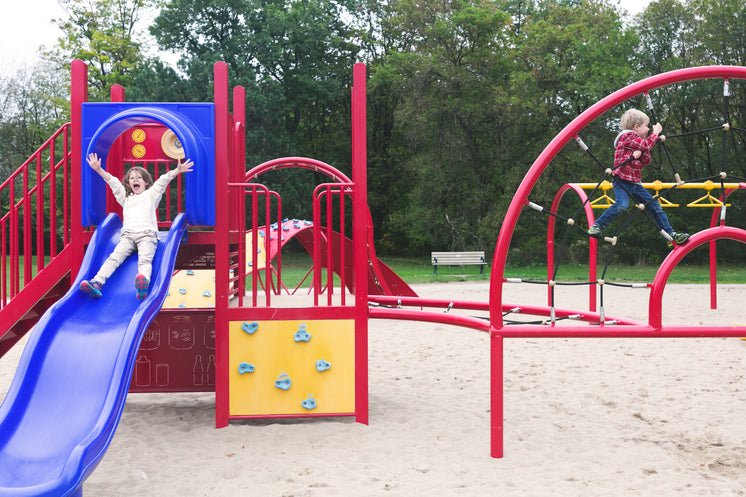- Afghanistan
- Åland Islands
- Albania
- Algeria
- American Samoa
- Andorra
- Angola
- Anguilla
- Antarctica
- Antigua and Barbuda
- Argentina
- Armenia
- Aruba
- Australia
- Austria
- Azerbaijan
- Bahamas
- Bahrain
- Bangladesh
- Barbados
- Belarus
- Belgium
- Belize
- Benin
- Bermuda
- Bhutan
- Bolivia
- Bonaire, Sint Eustatius, and Saba
- Bosnia and Herzegovina
- Botswana
- Bouvet Island
- Brazil
- British Indian Ocean Territory
- British Virgin Islands
- Brunei
- Bulgaria
- Burkina Faso
- Burundi
- Cambodia
- Cameroon
- Canada
- Cape Verde
- Cayman Islands
- Central African Republic
- central square ny
- Chad
- Chile
- China
- Christmas Island
- Cocos [Keeling] Islands
- Colombia
- Comoros
- Cook Islands
- Costa Rica
- Croatia
- Cuba
- Curaçao
- Cyprus
- Czech Republic
- Congo - Kinshasa
- Denmark
- Djibouti
- Dominica
- Dominican Republic
- Timor-Leste
- Ecuador
- Egypt
- El Salvador
- Equatorial Guinea
- Eritrea
- Estonia
- Ethiopia
- Falkland Islands
- Faroe Islands
- Fiji
- Finland
- France
- French Guiana
- French Polynesia
- French Southern Territories
- Gabon
- Gambia
- Georgia
- Germany
- Ghana
- Gibraltar
- Greece
- Greenland
- Grenada
- Guadeloupe
- Guam
- Guatemala
- Guernsey
- Guinea
- Guinea-Bissau
- Guyana
- Haiti
- Heard Island and McDonald Islands
- Honduras
- Hong Kong SAR China
- Hungary
- Iceland
- India
- PAN (Presence Across Nation)
- Indonesia
- Iran
- Iraq
- Ireland
- Isle of Man
- Israel
- Italy
- Côte d’Ivoire
- Jamaica
- Japan
- Jersey
- Jordan
- Kazakhstan
- Kenya
- Kiribati
- Kosovo
- Kuwait
- Kyrgyzstan
- Laos
- Latvia
- Lebanon
- Lesotho
- Liberia
- Libya
- Liechtenstein
- Lithuania
- Luxembourg
- Macau SAR China
- Macedonia
- Madagascar
- Malawi
- Malaysia
- Maldives
- Mali
- Malta
- Marshall Islands
- Martinique
- Mauritania
- Mauritius
- Mayotte
- Mexico
- Micronesia
- Moldova
- Monaco
- Mongolia
- Montenegro
- Montserrat
- Morocco
- Mozambique
- Myanmar [Burma]
- Namibia
- Nauru
- Nepal
- Netherlands
- Netherlands Antilles
- New Caledonia
- New Zealand
- Nicaragua
- Niger
- Nigeria
- Niue
- Norfolk Island
- North Korea
- Northern Mariana Islands
- Norway
- Oman
- Pakistan
- Palau
- Palestinian Territories
- Panama
- Papua New Guinea
- Paraguay
- Peru
- Philippines
- Pitcairn Islands
- Poland
- Portugal
- Puerto Rico
- Qatar
- Congo - Brazzaville
- Réunion
- Romania
- Russia
- Rwanda
- Saint Barthélemy
- Saint Helena
- Saint Kitts and Nevis
- Saint Lucia
- Saint Martin
- Saint Pierre and Miquelon
- Saint Vincent and the Grenadines
- Samoa
- San Marino
- São Tomé and Príncipe
- Saudi Arabia
- Senegal
- Serbia
- Serbia and Montenegro
- Seychelles
- Sierra Leone
- Singapore
- Sint Maarten
- Slovakia
- Slovenia
- Solomon Islands
- Somalia
- South Africa
- South Georgia and the South Sandwich Islands
- South Korea
- South Sudan
- Spain
- Sri Lanka
- Sudan
- Suriname
- Svalbard and Jan Mayen
- Swaziland
- Sweden
- Switzerland
- Syria
- Taiwan
- Tajikistan
- Tanzania
- Thailand
- Togo
- Tokelau
- Tonga
- Trinidad and Tobago
- Tunisia
- Turkey
- Turkmenistan
- Turks and Caicos Islands
- Tuvalu
- U.S. Virgin Islands
- Uganda
- Ukraine
- United Arab Emirates
- United Kingdom
- United States
- U.S. Minor Outlying Islands
- Uruguay
- Uzbekistan
- Vanuatu
- Vatican City
- Venezuela
- Vietnam
- Wallis and Futuna
- Western Sahara
- Yemen
- Zambia
- Zimbabwe
Patsy Lockyer

Patsy Lockyer
- ,
- Graphics Design
- Member Since: 14 Oct 2025
Chasing Jackpots and Broken Dreams: The High-Stakes Gamble of Casino AddictionChasing Jackpots and Broken Dreams: The High-Stakes Gamble of Casino Addiction
The flashing lights, the incessant ringing of slot machines, the murmur of hushed conversations around poker tables – the casino is a carefully orchestrated symphony of sensory experiences designed to captivate and entice. For many, it's a harmless form of entertainment, a night out with friends where the thrill of potential winnings adds a touch of excitement. However, for a significant percentage of the population, the allure of the casino morphs into something far more sinister: a crippling addiction that can devastate lives and families. Casino addiction, also known as gambling disorder, is a complex and multifaceted problem with devastating consequences. It's a slippery slope that can lead individuals down a path of financial ruin, fractured relationships, and profound psychological distress.
The Psychology of the Gamble: Why Casinos Are So Addictive
The addictive nature of casinos is not accidental. Casinos are meticulously designed to exploit vulnerabilities in the human psyche and trigger the brain's reward system. Several key factors contribute to this potent mix:
- Variable Ratio Reinforcement: This psychological principle, a cornerstone of slot machine design, involves rewarding players on an unpredictable schedule. The anticipation of a win, even if infrequent, keeps players engaged and chasing the next payout. The inconsistency is key; a consistent reward would become predictable and less stimulating.
- Near Misses: The near miss, where the reels align almost perfectly but fall just short of a jackpot, triggers the same dopamine release in the brain as an actual win. This fuels the illusion that success is just around the corner, encouraging further play.
- Loss Aversion: The pain of losing is often felt more intensely than the pleasure of winning the same amount. This can lead gamblers to chase their losses, attempting to recoup what they've lost, often escalating their bets and digging themselves deeper into debt.
- Escapism: For some, the casino offers an escape from the stresses and anxieties of daily life. The immersive environment, the focus on the games, and the temporary thrill can provide a temporary reprieve, but this escape comes at a high price.
- Social Factors: Casinos provide a social environment, particularly for those who may feel isolated or lonely. The camaraderie, the shared excitement, and the perceived sense of belonging can contribute to the addictive pull.
The combination of these psychological factors, coupled with the readily available access to gambling opportunities, creates a powerful environment for addiction to thrive. Furthermore, the anonymity afforded by many casinos, especially online platforms, can exacerbate the problem, allowing individuals to gamble in secret and hide the extent of their losses.

Recognizing the Signs: Identifying Casino Addiction
Identifying casino addiction early is crucial for intervention and treatment. However, recognizing the signs can be challenging, as many individuals are adept at hiding their problem. Some common warning signs include:
- Preoccupation with Gambling: Constantly thinking about gambling, planning the next visit to the casino, or reliving past gambling experiences.
- Chasing Losses: Returning to the casino to try to win back money that has been lost.
- Gambling with Increasing Amounts of Money: Needing to gamble with larger and larger sums of money to achieve the same level of excitement.
- Lying About Gambling: Hiding the extent of gambling activities from family, friends, and therapists.
- Borrowing Money to Gamble: Resorting to loans, credit cards, or even illegal activities to finance gambling habits.
- Neglecting Responsibilities: Ignoring work, school, or family obligations due to gambling.
- Restlessness or Irritability When Trying to Cut Down or Stop: Experiencing withdrawal symptoms when attempting to reduce or cease gambling.
- Loss of Control: Being unable to stop gambling, even when trying to do so.
- Relationship Problems: Experiencing conflict with family and friends due to gambling.
- Financial Difficulties: Accumulating significant debt, facing bankruptcy, or experiencing other financial problems related to gambling.
It's important to remember that not all gamblers are addicts. However, if several of these signs are present, it's a strong indication that a problem exists and professional help should be sought.
The Devastating Consequences: The Impact of Casino Addiction
The consequences of casino addiction extend far beyond financial ruin. The addiction can have a devastating impact on virtually every aspect of an individual's life:

Financial Ruin
The most obvious consequence is financial devastation. Addicts often gamble away their savings, retirement funds, and even their homes. They may accumulate significant debt, leading to bankruptcy and other financial problems. The desperation to recoup losses can lead to increasingly risky and desperate behaviors.
Relationship Problems
Casino addiction can strain relationships with family and friends. Lies, deceit, and broken promises erode trust and create conflict. Family members may feel betrayed, angry, and helpless as they watch their loved one's life unravel. Divorce and separation are common outcomes.
Mental Health Issues
Casino addiction is often comorbid with other mental health issues, such as depression, anxiety, and substance abuse. The stress and shame associated with gambling can exacerbate these conditions, leading to a vicious cycle of addiction and mental illness. Suicidal thoughts and attempts are also a significant risk.
Legal Problems
In their desperation to finance their gambling habits, addicts may resort to illegal activities such as theft, fraud, or embezzlement. This can lead to arrest, prosecution, and imprisonment, further compounding their problems.
Physical Health Problems
The stress and anxiety associated with casino addiction can take a toll on physical health. Addicts may experience sleep problems, digestive issues, headaches, and other stress-related ailments. Poor diet and lack of exercise can further contribute to physical health problems.

Breaking Free: Treatment and Recovery
Breaking free from casino addiction is a challenging but achievable goal. Treatment typically involves a combination of therapy, support groups, and, in some cases, medication.
Therapy
Cognitive Behavioral Therapy (CBT) is a common and effective form of therapy for gambling addiction. CBT helps individuals identify and challenge the negative thoughts and behaviors that contribute to their gambling problem. It also teaches coping skills for managing urges and cravings.
Support Groups
Gamblers Anonymous (GA) is a 12-step program that provides a supportive environment for individuals recovering from gambling addiction. GA meetings offer a safe space to share experiences, connect with others who understand the challenges of addiction, and receive encouragement and support.
Medication
In some cases, medication may be prescribed to treat co-occurring mental health conditions such as depression or anxiety. Some medications may also help to reduce cravings and urges to gamble.
Self-Exclusion Programs
Many casinos offer self-exclusion programs that allow individuals to ban themselves from the premises. This can be a helpful tool for preventing relapse. Online gambling platforms also offer similar self-exclusion options.
Financial Counseling
Financial counseling can help addicts manage their debt, create a budget, and develop a plan for rebuilding their financial lives.
Recovery from casino addiction is a long-term process that requires commitment, perseverance, and ongoing support. Relapse is common, but it doesn't have to be a permanent setback. With the right treatment and support, individuals can overcome their addiction and rebuild their lives.
Prevention is Key: Reducing the Risk of Casino Addiction
While treatment is essential for those struggling with casino addiction, prevention is even more crucial. Several strategies can help reduce the risk of developing this devastating disorder:
Education and Awareness
Raising awareness about the risks of casino addiction is essential. Educating the public, especially young people, about the psychological factors that contribute to addiction and the potential consequences of gambling can help prevent problems from developing in the first place.
Responsible Gambling Measures
Casinos can implement responsible gambling measures such as setting limits on betting amounts, providing information about problem gambling resources, and training employees to recognize and assist individuals who may be struggling with addiction.
Regulation of Gambling Advertising
Regulating gambling advertising can help reduce its influence on vulnerable individuals. Limiting the frequency and content of gambling ads can help prevent the normalization of gambling and reduce the temptation to gamble.
Early Intervention
Identifying and intervening early when individuals are showing signs of developing a gambling problem can be crucial. Family members, friends, and healthcare professionals can play chicken road online (chicken-road-365.com officially announced) a vital role in recognizing the warning signs and encouraging individuals to seek help.
Promoting Alternative Activities
Encouraging participation in alternative activities that provide similar excitement and stimulation, such as sports, hobbies, and social events, can help reduce the reliance on gambling as a source of entertainment and escape.
The Future of Casino Addiction: Challenges and Opportunities
As technology continues to evolve, the landscape of casino addiction is also changing. Online gambling platforms and mobile apps have made gambling more accessible than ever before, increasing the risk of addiction. Virtual reality (VR) casinos are also on the horizon, potentially creating even more immersive and addictive gambling experiences.
Despite these challenges, there are also opportunities to leverage technology to prevent and treat casino addiction. Mobile apps can be used to track gambling behavior, provide personalized feedback, and offer access to support resources. Artificial intelligence (AI) can be used to identify individuals who are at risk of developing a gambling problem and provide targeted interventions.

Addressing the challenge of casino addiction requires a multi-faceted approach that combines prevention, treatment, and ongoing research. By working together, we can reduce the harm caused by this devastating disorder and help individuals and families rebuild their lives.
Conclusion: A Gamble with Lives
Casino addiction is a serious public health problem with devastating consequences for individuals, families, and communities. The lure of the casino, with its carefully orchestrated sensory experiences and exploitation of psychological vulnerabilities, can lead individuals down a path of financial ruin, fractured relationships, and profound psychological distress. Recognizing the signs of addiction, seeking professional help, and implementing preventive measures are crucial steps in addressing this complex issue. As technology continues to evolve, it is essential to adapt our strategies to mitigate the risks of online gambling and virtual reality casinos. Ultimately, by prioritizing prevention, treatment, and ongoing research, we can strive to reduce the harm caused by casino addiction and create a healthier and more supportive society for all. The stakes are high – lives are on the line.
Details
| Gender | - |
| Salary | 22 - 82 |
| Address | 47010 |


